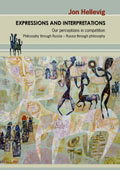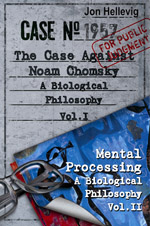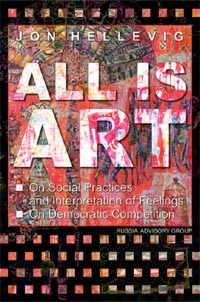|
|
| |
Competitive Method
Instead of the Scientific Method we have the Competitive Method
Science is a subsystem of arts (sometimes just an especially dull form of waste art merely reclassified as science) - this system of arts is itself a perception of knowledge (a lot of the social science we are treated with is best subsumed under the artistic movement La Science pour La Science). � When in fact all we have is a competition of arguments � and a bunch of doorkeepers exercising a face-control on arguments.
The so-called scientific method is in fact but a competitive method. Instead of a �scientific method� the natural sciences benefited from competition. It was the growth of competition and freedom of competition which fueled scientific progress. Every scientific theory would have to prove itself in the market place of ideas. To prove his theory the scientist had to be well prepared: study as much as possible of the recent work relevant to his field and transparently argue his opinions.
In social sciences we should not hold the methods and results of natural sciences as something to imitate (things and their movements are no analogy for feelings); but instead the practice of natural sciences would gain a lot from understanding the kind of diversity that this new concept of social sciences has to offer.
The spread of information and the unfolding of communication was the enlightenment.
(Howard Caygill writes about �the remarkable development in German philosophy that succeeded Kant, and the Enlightenment that preceded it.� � In fact approximately one and a half century of �remarkable German philosophy� led to the horrors of the Second World War; Nazism and Communism, the mass-murder of people in the name of Ideas � the Absolute Ideas).
Exact sciences
The natural sciences are often called the exact sciences (although more prudent people reserve that notion for mathematics � which in turn is misleading, as shall be discussed later). Even then when people do not talk about �the exact sciences�, they still muddle regarding the �exactness� of natural sciences. There have been interruptions in the natural world; there has been construction (and certainly destruction) in the natural world, but there is no planning of the natural world. Whatever notion of planning there is in the natural world there is equally in the social world. - We simply do not posses any knowledge that comes near to merit the epithet exact in sciences. � The idea of the exactness comes from the measuring system, mathematics, which they have pronounced exact.
Sein, Sollen and Gewesen � What is, What Ought to Be, and What Has Been
One more of the fundamental misconceptions in all kind of philosophy, and social theories of all sorts, is the failure to correctly deal with the distinction between �is� and �ought� and especially the lack of the notion �has been�. � Modeling on famous misconceived sophistry we can also call these with the German words �Sein� (for �is�); �Sollen� for (�ought to be�), and the point they have all omitted: the �Gewesen� (for �has been�). The problem is that the Gewesen, what has been, is taken for the reality, and Sollen, the �ought to� which is pure personal speculation of an author has been taken to represent the �is� � i.e. the �is� that the speculative author is trying to convince us to exchange our present reality for (some with remarkable success).
In this book I am promoting an understanding of the concept of law as being part of a scientific �is� � the everyday reality.
|
|

To download a free pdf file of this book, please click
here
To buy this book, please enter here (www.ruslania.com bookstore)

Click here to download free PDF file

Click here to download free PDF file

Click here to download free PDF file
|

